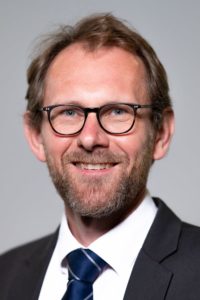At the meeting of the G7 foreign ministers in Japan in mid-April, the politicians present dealt with current challenges and how they can be overcome in an internationally difficult context. IDOS also addresses this topic.

At this year’s Think7 Summit in Tokyo (27-28 April), Professor Anna-Katharina Hornidge, Director of IDOS, and international representatives from science and politics discussed possibilities for closer cooperation between the G7 and G20 as well as concrete recommendations for action for the G7 in various policy fields (including digitalisation, science, sustainability and economy). As part of her role as co-chair of a Think7 working group, Anna-Katharina Hornidge moderated a panel discussion on science and digitisation and participated as a panellist in a panel on the greening of the G7 economies as well as in the concluding session to reflect on the summit outcomes and next steps.
With reference to the Issue Brief, which presents the central recommendations for action of her working group, she emphasised, among other things, the importance of new formats of international scientific cooperation and science funding. In these formats, local knowledge should be better taken into account and integrated by means of technological innovations while context-sensitive results should be made available more effectively and comprehensively worldwide.

Dr Axel Berger, Deputy Director of IDOS, also dealt with the challenges and conditions for success of multilateral cooperation in April. On 17 April, he took part in a roundtable discussion organised by Goethe University and the German Institute for International and Security Affairs (SWP).With high-ranking representatives of German universities, think tanks and ministries he discussed the perspectives for multilateralism in the context of the Russian war of aggression, system rivalry and bloc formation. He emphasised the opportunity of plurilateral approaches for the further development of global rules and regulations, for example in the areas of trade and climate. At the same time, he made clear that the capacities of many lower and middle income countries must be strengthened in order to successfully negotiate and implement these agreements.
Schreibe einen Kommentar